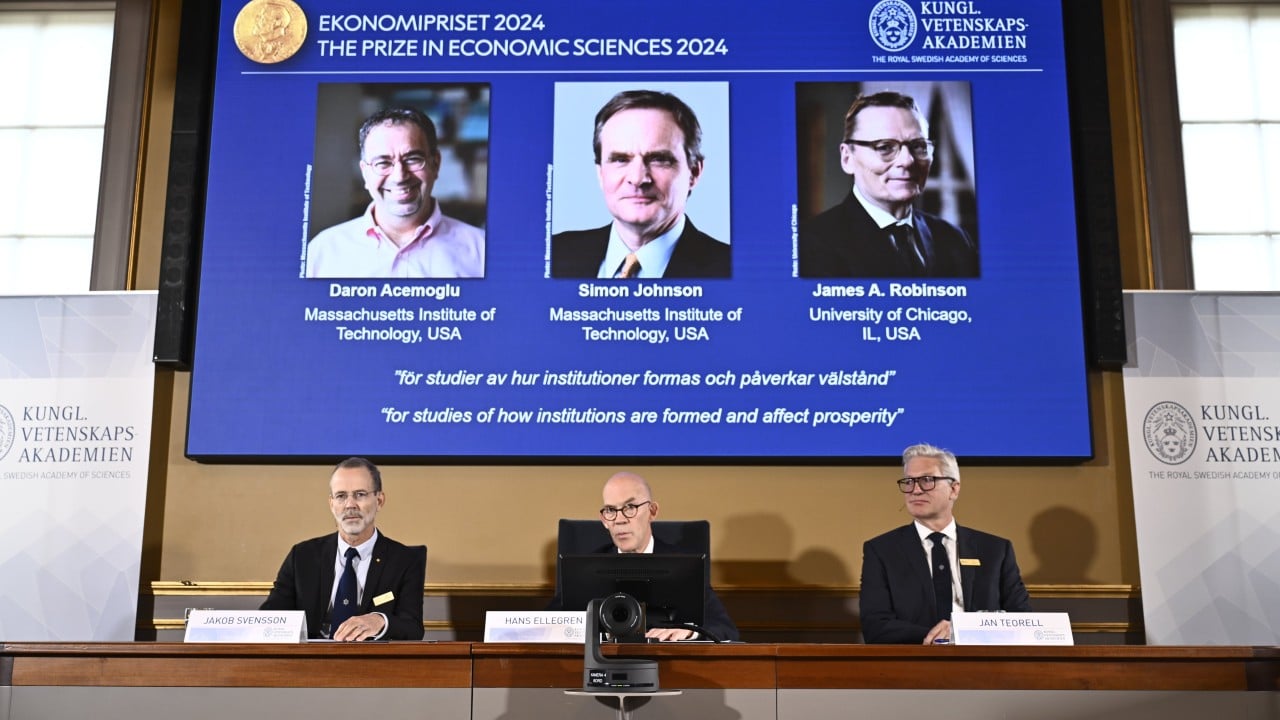Riding on recent discussions by Nobel Prize-winning economists on the importance of institutions to growth, some members of the Communist Party’s elite have renewed calls for more policy support for private entrepreneurs as China looks for ways to reinvigorate its sluggish economy.
Advertisement
Hu Deping, the eldest son of late liberal leader Hu Yaobang who was instrumental in China’s opening up, called for greater attention for the research conducted by Western scholars James Robinson, Daron Acemoglu and Simon Johnson.
The trio were awarded the Nobel Prize in economics in October for their elaboration on how institutions and inclusiveness are critical factors that separate rich and poor nations.
While their theory has been viewed by some with suspicion in China, Hu – a vocal voice of the so-called princeling faction that refers to descendants of the past state leaders – said it deserved closer reading and further discussion.
Other prominent Chinese intellectuals, including economist Xiang Songzuo and Renmin University professor Nie Huihua, have also called for a rethink about the role of institutions.
The current difficulties facing the private economy are about the business environment and external factors. These issues are not of the sector’s own making
Hu, meanwhile, said the theory about “institutional economics” had caused a sensation in China and overseas, according to a transcript of a speech published in the December issue of China Private Business magazine.

